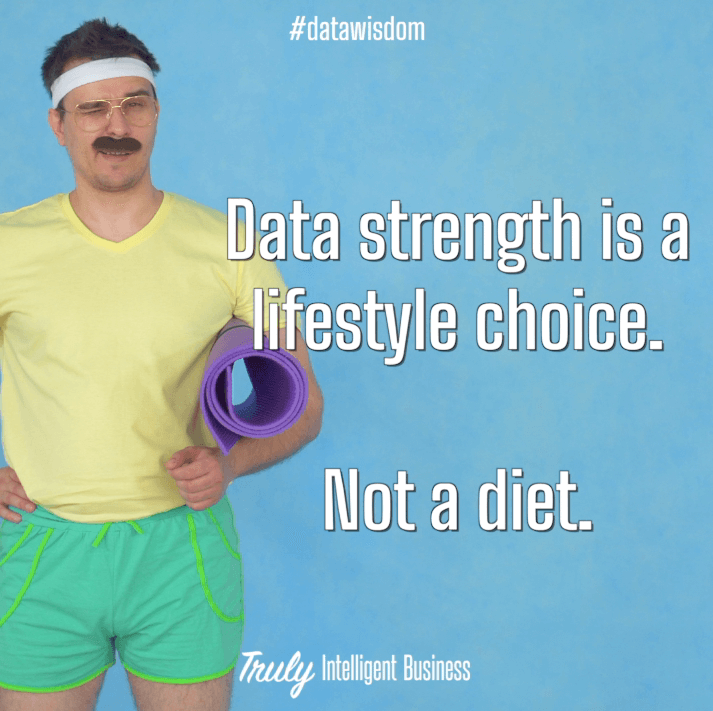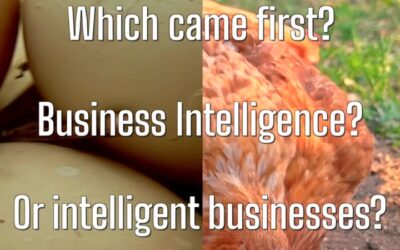Data Excellence is a lifestyle not a diet!
When we talk about data excellence and strength, we’re looking at how effectively a business uses data to achieve its goals. And just like physical strength, it comes from a combination of different things…
Think about what enables a weightlifter to shift huge weights… It’s not just muscles, but equally the right technique, ample energy and a confident mindset.
Similarly, leveraging the power of data to achieve business goals demands a mix of capabilities. You need the right data, the infrastructure to move and store it, the technology to analyse and use it, compliance to avoid the risks in it, governance to maintain the quality of it, the people, skills and culture to embrace it… And more!
When you think about it like that, it’s easy to see that just like a 6-week diet and a few trips to the gym won’t build physical strength, various technologies and a few data projects won’t build data strength.
What we need to do is change the business’s long-term ‘data lifestyle’.
But what does that mean? Well, an unhealthy data lifestyle is one where data is considered only in isolated scenarios. Such as ‘the data required for these KPIs’, or the ‘data impacts of this project’.
That’s the equivalent of thinking that a few spinning classes here and the odd protein shake there, will get us winning triathlons.
A healthy data lifestyle means understanding the bigger picture of data capabilities required to support enduring business success, and building and maintaining them over time to ensure that they are all sufficiently conditioned and working in synergy.
Think broadly about how data can benefit your business, and what needs to happen to make that a reality. Capture that in a data strategy, and use it every week as a ‘data training plan’. Target long-term growth in your data capabilities, not just short-term data projects. Sure, go for quick-wins. But don’t confuse them with building data strength.
Chasing endless data quick-wins without building lasting data capabilities, is the data culture equivalent of yo-yo dieting.
And with that, I think I’ve stretched this analogy quite far enough. ?
For more articles like this check out our company LinkedIn page for more on #datawisdom.





0 Comments